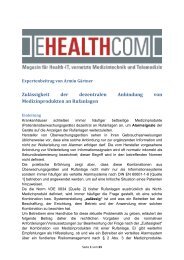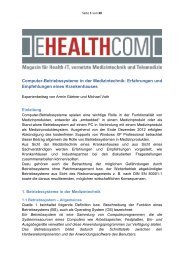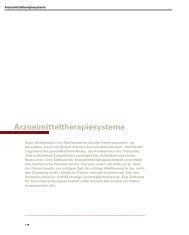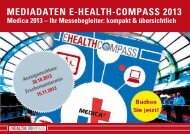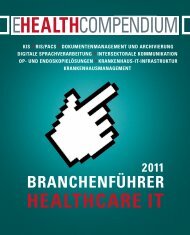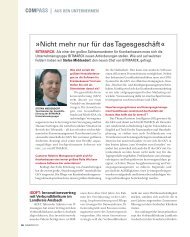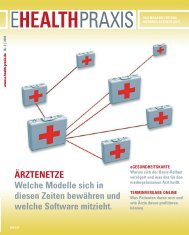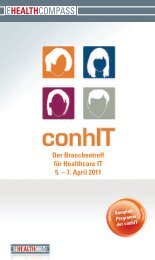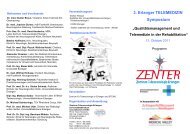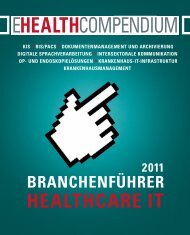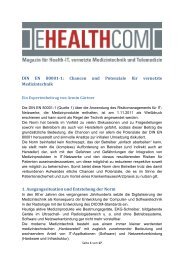eHealth Task Force Report - E-Health-Com
eHealth Task Force Report - E-Health-Com
eHealth Task Force Report - E-Health-Com
Create successful ePaper yourself
Turn your PDF publications into a flip-book with our unique Google optimized e-Paper software.
Section .1 .<br />
<strong>e<strong>Health</strong></strong> in 2020 –<br />
5 levers for change<br />
This section presents 5 levers for change – each of these<br />
levers are interconnected and build on each other. The starting<br />
point is enacting individual ownership of personal health data.<br />
Releasing the data from different silos throughout the health<br />
and care system and connecting to the vibrant digital environment<br />
for health information will transform the landscape of<br />
health. The principle of ensuring that all citizens can use and<br />
benefit from <strong>e<strong>Health</strong></strong> will create opportunities for innovation.<br />
. Lever for change #1: .<br />
My .data, .my .decisions<br />
Individuals are the owners and controllers of their own health<br />
data, with the right to make decisions over access to the data<br />
and to be informed about how it will be used. This principle is<br />
outlined in EU law and European jurisprudence but is rarely<br />
fully implemented in health systems.<br />
This represents a shift in the power relationships within healthcare;<br />
away from the unrestrained authority of the medical<br />
professional and towards a more collaborative partnership<br />
with patients taking on a greater responsibility and more active<br />
role in managing their own wellbeing. To manage their new<br />
responsibilities, users need not only to understand the possibilities<br />
of such <strong>e<strong>Health</strong></strong> tools but they also need to feel that<br />
they have control over how they interact with them.<br />
There are different ways of dealing with these new scenarios<br />
of individuals owning their own data. One possibility is the<br />
shared ownership between the patient and the health system<br />
depending on the use; i.e. patients as owners of personal health<br />
information but allowing the health system to use depersonalised<br />
or ‘pseudonymised’ data for epidemiological purpose<br />
with or without requiring additional consent. Existing models<br />
of positive and negative consent from the fields of bioethics<br />
and organ transplantation could be a template for consent for<br />
processing personal data.<br />
PATIENT<br />
LEVER for change 1<br />
<strong>e<strong>Health</strong></strong> <strong>Task</strong> <strong>Force</strong> <strong>Report</strong> – Redesigning health in Europe for 2020 | 9



